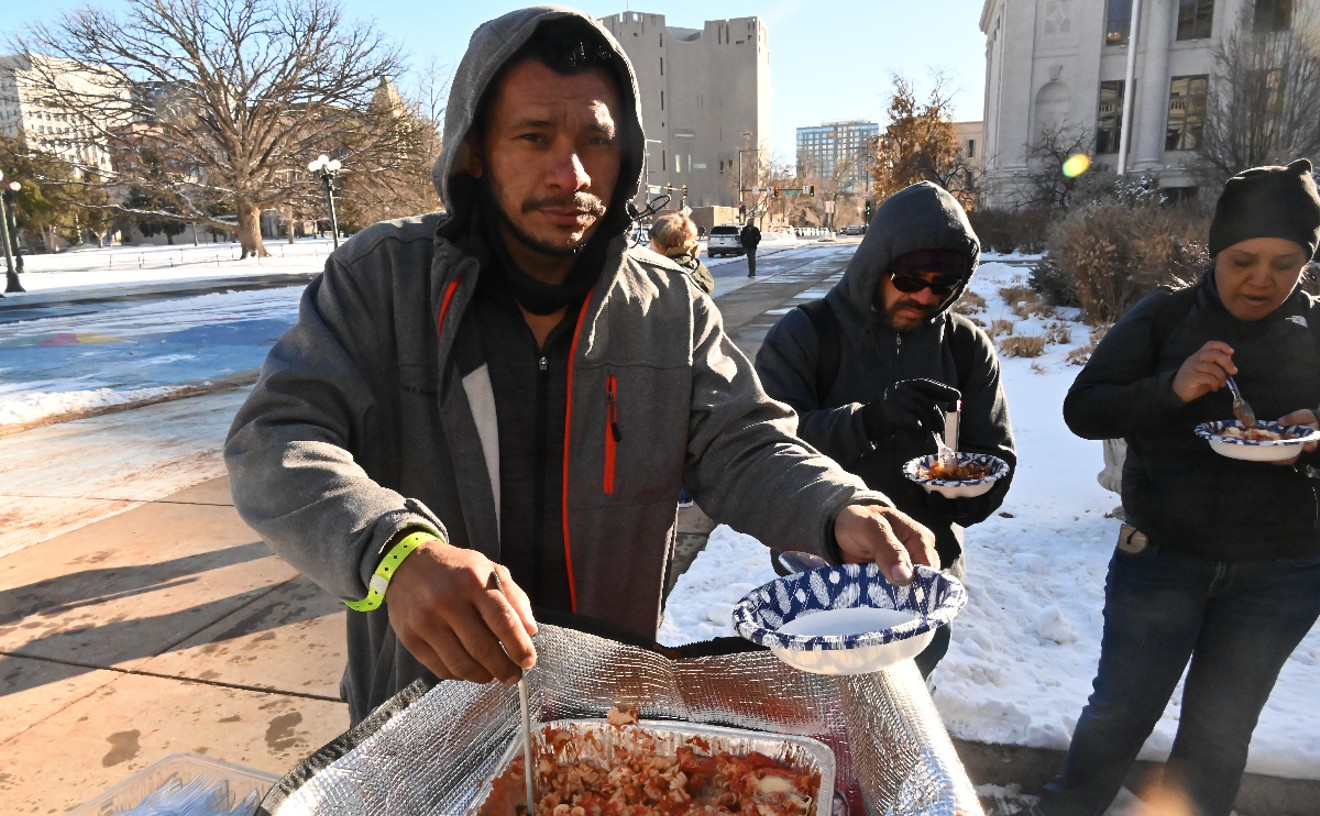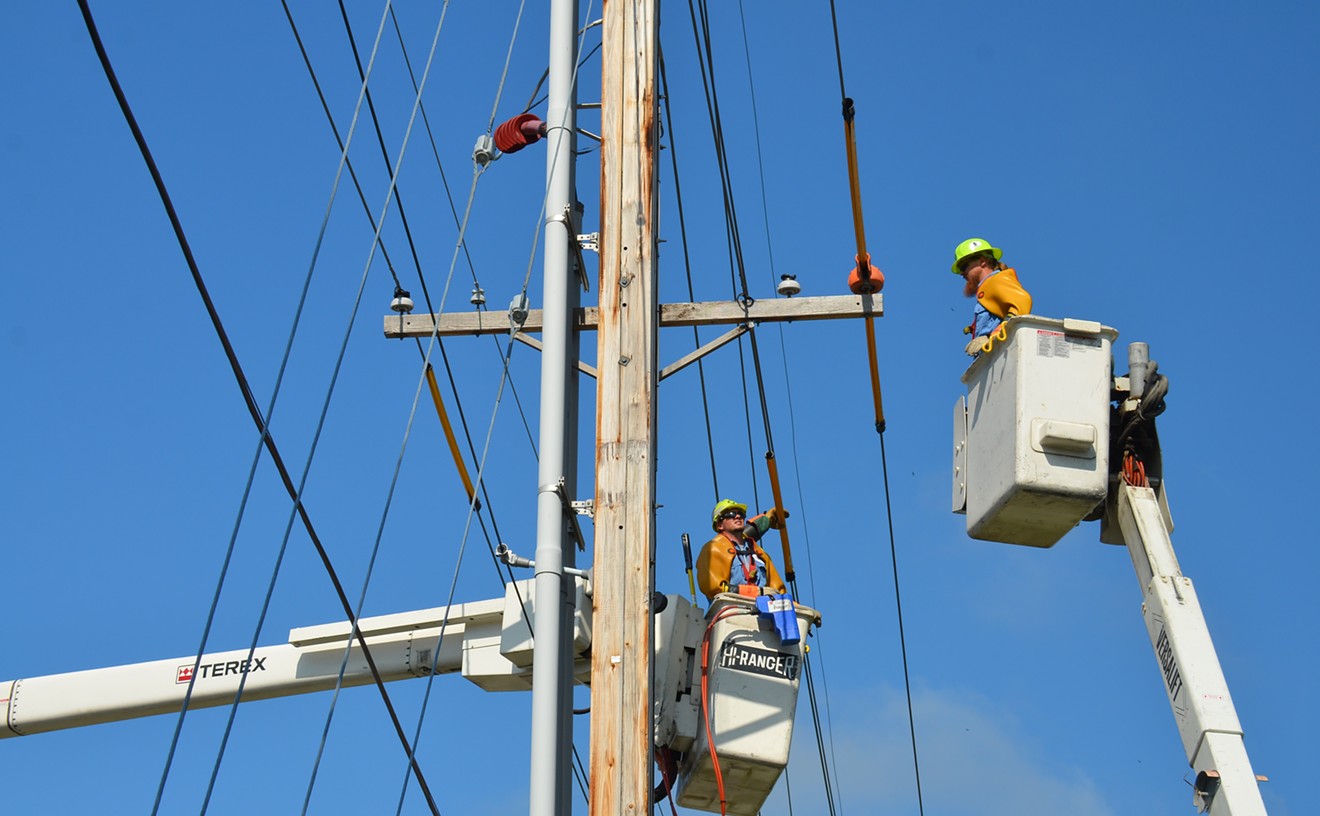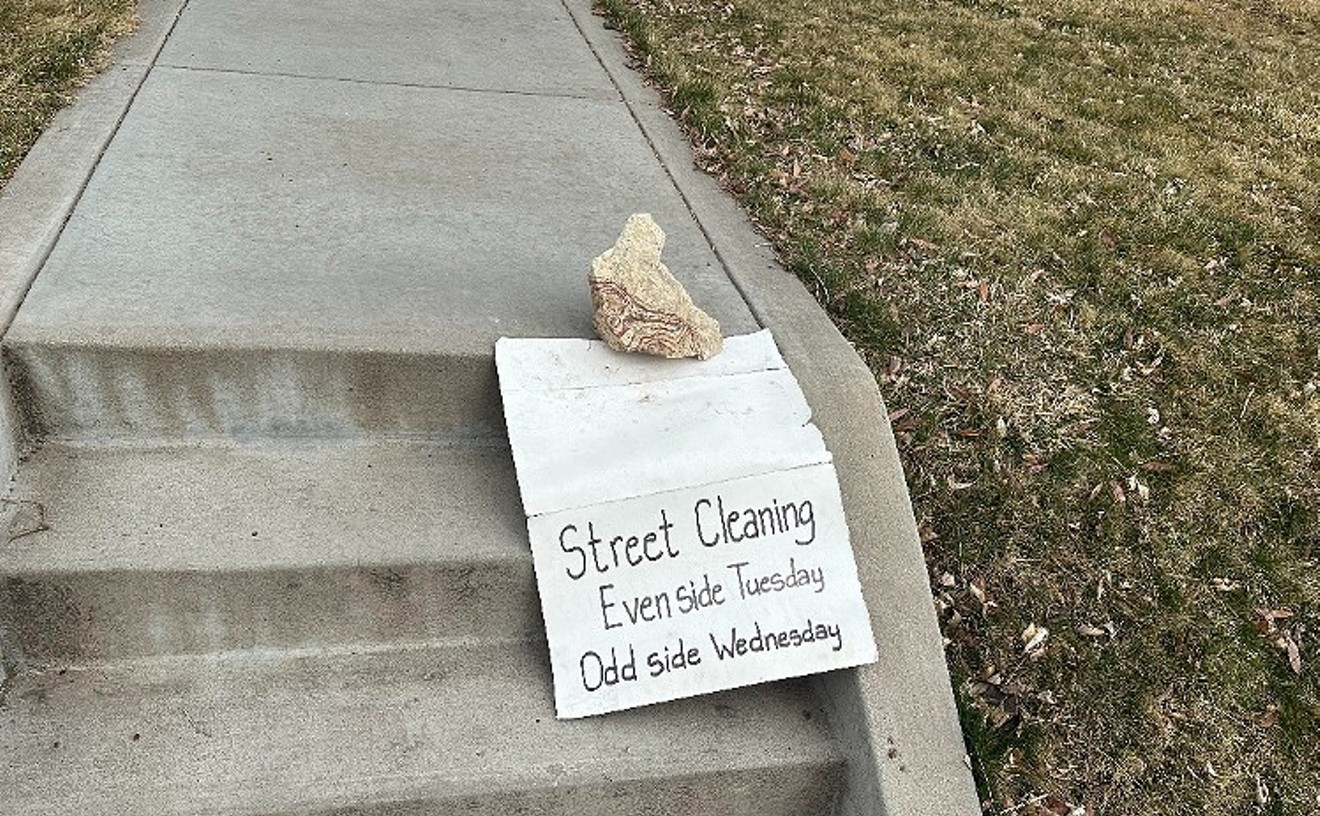Jessica LeRoux, aka the Cheesecake Lady, who owns and operates Twirling Hippy Confections, one of the longest-running edibles companies in the state, couldn't agree more. If the limits become law, she says, "I can't see any way that my business could survive."
House Bill 13-1317, whose latest version is on view below in its entirety, calls for "a serving size for edible retail marijuana products that does not contain more than ten milligrams of active THC, label requirements regarding servings for edible retail marijuana products, and limitations on the total amount of active THC in a package that is no more than one-hundred milligrams of active THC."
The Twirling Hippy website lists plenty of products under one-hundred milligrams. They're grouped in three tiers, with the first falling in the 50-60 milligram range, the second between 70 and 85 milligrams, and the third set at 100-125 milligrams. However, LeRoux tells us this roster is out of date. "Now, tier three is 125 milligrams across the board, the next tier above that is up to 240 milligrams, and post-Amendment 64," which allows people to share marijuana, "we've been making customized cakes that can go anywhere from 500 to 1,500 milligrams."The escalating THC amounts is not only being driven by competition from other manufacturers, LeRoux says. Rather, they are largely a result of medical marijuana patients who use edibles to counteract pain building up a tolerance to THC -- meaning they require higher amounts in order to feel the same level of relief they'd previously experienced with fewer milligrams.
"They're not eating these for the euphoric effect," she stresses. "They're intended to get you through the day when you're dealing with pain."
At this point, it's unclear if the proposed limit would be put in place for recreational and medical consumers alike, since the establishment of new medical standards has been put on hold until after the legislature acts -- something that frustrates LeRoux. But if the standard is applied across the board, and that's entirely possible, medical patients would have to eat many more edibles in order to get the same level of pain mitigation. LeRoux believes doing so would be beyond the financial means of many patients, and ingesting so many more sweets would raise other dietary and health concerns.
What effect would the limits have on purely recreational users? LeRoux thinks that "a first-time user may have a pleasant and euphoric experience on 25 milligrams," but the ten milligram limit "creates a false bottom. Let's say you eat ten milligrams and nothing happens. You're going to keep eating, and then it's going to catch up with you."
Continue for more of our interview with Jessica LeRoux about proposed marijuana edibles THC limits. Moreover, LeRoux argues that firmly establishing that an edible has ten milligrams of THC is all but impossible, since labs -- which are not currently licensed by the state, although that should change under the current bill -- "acknowledge they have a minimum 20 percent swing in either direction when they're testing something. That's a 40 percent window, a huge disparity. And ten milligrams is too small a number for the labs to prove it accurately."
In her view, the impossibility of this task will likely motivate some labs to say that everything is ten milligrams even when it's not -- "and what happens if something comes out at eleven milligrams? The state has zero plans for that."
What's driving the call for lower numbers? LeRoux argues that it's fear mongers who are telling legislators that without strict limits, children who accidentally ingest a marijuana edible could be severely sickened. Such claims are frustrating to her."If your child is not old enough to comprehend the concept that if you're at a friend's house, you don't eat anything not offered you by a parent, that child needs 24-7 supervision," she maintains.
Whatever the case, LeRoux feels edibles opponents are using children as convenient political tools. "The people who pushed for ten milligram didn't want a limit on edibles -- they wanted us to be out of business," she says. "They asked for edibles to be outlawed entirely, but the legislature wouldn't go along with that -- so they're trying to put us out of business another way."
They may succeed. LeRoux says her sales have dropped because so many patients have stopped renewing their red cards, thinking they're no longer necessary after the passage of Amendment 64. Couple this decrease in her customer base with her insistence on using first-rate food ingredients rather than "junk" and she says, "I'll be lucky if I make it to September."
LeRoux lays out her edibles argument and more in an essay she shared with Westword. Continue to read it, as well as to see the latest version of HB 13-1317. Jessica LeRoux essay about proposed THC limits for edibles and the marijuana bills in general:A potency limit on edibles will be an unfair boon to the black market for edibles which is quite robust and does not require any testing, labeling, or any other oversight.Furthermore A-64 specifically allows sharing between adults of their cannabis including edibles, why is the legal industry being excluded from that aspect of the market? We already know how to make great products, we have clean safe facilities, we have good control over potency, and we are honestly struggling financially under 1284 and there are no improvements to our business licenses to be found in this bill. Home cooks may end up throwing their money in the trash based on their skills in the kitchen, what happens to the burnt batch of brownies in the home trash? is it eaten by pets? Wildlife (do you wanna deal with a stoned skunk in your garage)? A naughty neighbor child who's lazy parent does not provide adequate supervision? Please remove that portion of HB13-1317.
Poison control packaging should only be an option for parents that need it, not a forced expense on people who do not have kids. A person's right to possess a non-leathal legal substance in their purse, their car, or their home certainly supersedes the rights of a lazy parent of a child who steals. We have criminal codes to deal with juvenile thieves, lets remember who is the criminal here...
Perhaps a solution is to instead have adults sign a waiver printed on the receipt they take with them at the time of sale, saying that the purchaser accepts the legal responsibility to keep these products away from Minors, pets and any other party the state deems ineligible to access marijuana.
The state inexplicably plans to steal the private property of legal medical patients by transferring plants that legally belong to a patient into the retail custody of the medical center that merely was growing that plant for the patient in question. This is patently illegal and completely made up out of whole cloth with no legal precedent. This is not a legal option for stocking the coffers of the retail centers, the state needs to go back to the drawing board here.
Another year of 70/30 vertical integration will be extremely unfair to rural medical businesses in good standing with the MMED as there is simply no warehouse space in these rural areas for expansion of grows to meet expanded needs to supply retail clients as well as the existing patient base. Also the industry desperately needs new faces, very few (shady) operators have the cash to expand and none of us smaller mom and pop owners want to be under their thumb to remain compliant as we would be exposed to the liability for any rules they break even if they are 5 to 8 hours away and we would be hard pressed to check up on the new partner's compliance efforts. Currently all MIPs are not required to be vertically integrated and there is no problem with ensuring compliance for these non-integrated businesses. Not one MIPs has ever been accused of diversion by the MMED or any other enforcement agency. Also want if the cap on an OPC falls short of the demand, how can that licensee meet the 70/30 without taking on a big alphabet soup cartel partner? Please read the 8 unpleasant truths about vertical integration here.
Additionally if a new entrant can apply in January but cannot open for 10 months, they will be paying on a lease for 10 months with no income, crushing the dreams of many for small scale family owned businesses. These businesses have a much better chance of survival in all areas of the state if they are owned by persons who live in the community they serve so that people know and trust the owners. Locals often feel they are being used or burned by some absentee fat cat owner who does not care about the people who shop in the store they own from afar.
There is neither the science nor Supreme Court (McNeely vs Missouri) support for a 5 nanogram limit, nor invasive forced blood draws. Additionally the State of Colorado has had 2 years or more of nightmares with our state run lab from thousands of results being thrown out because of employee error, and our top state toxicologist Cynthia Burbach was found to have lied to the state about her qualifications and credentials. Adding to the financial burden of our state labs without adaquate funding is only an incentive to the overburdened labs who are already 14 months behind in turn around time just on samples from our existing laws, to falsify results to ensure timely results for their friends in the courts. Please follow these links to some other timely info about testing facilities here and nationwide.
If we cannot fix these flaws I would strongly urge you to vote no on the entire Bill HB13-1317.
Also re: 13-1318 I know many in the blackmarket who cant wait to raise their prices by 20 to 25% as they can increase their profit when industry prices rise.... Right now you can pay about the same price for marijuana from a MMC or a private grower (I don't know where the talk about cartels comes from the growers in my area outside Nederland have been there happily serving the same client base for over two decades, we aren't seeing new "gang type" activity where i live. the only cartel in CO is lobbyists backed MMIG and CBA , or as I call them the alphabet soup cartel). Furthermore these "black market" growers far and away exceed the quality of the cannabis grown by big buggy denver warehouses from the cartel of lobbyist backed MMCs. I've heard Rep. Singer claim audaciously that because we have "skin in the game" industry members will support, fund election campaigns, and promote the passage of this bill to which I say HA HA HA no way on earth any of us will remotely do any such thing. In fact you can be certain that as you read this industry members are already actively campaigning against this bill to any patient or person we encounter.
We in the industry think a 12% combined tax is about right... 5% sales tax, and 7% excise tax which should generate between 3.5 and 20 million dollars based on the two extremes of potential sales Ive seen bandied about. If the MMED cant make that kind of money work for actual enforcement (which we've all been waiting to see since 2010) then they are the criminals, not the industry. We desperately need the MMED to clear all the bad apples (including those who served on the governors task force: two of whom have had repeated requests for MMED investigation of their 1284 crimes) from within the industry prior to opening the application process in October.
Thanks for reading, I hope you can support these reasonable changes to the bills so that it provides equal and fair access to business owners in all districts that wish to participate in the new jobs and opportunities for Colorado.
More from our Politics archive: "Marijuana retailers may not have to grow their own -- and that's great, attorney says."











